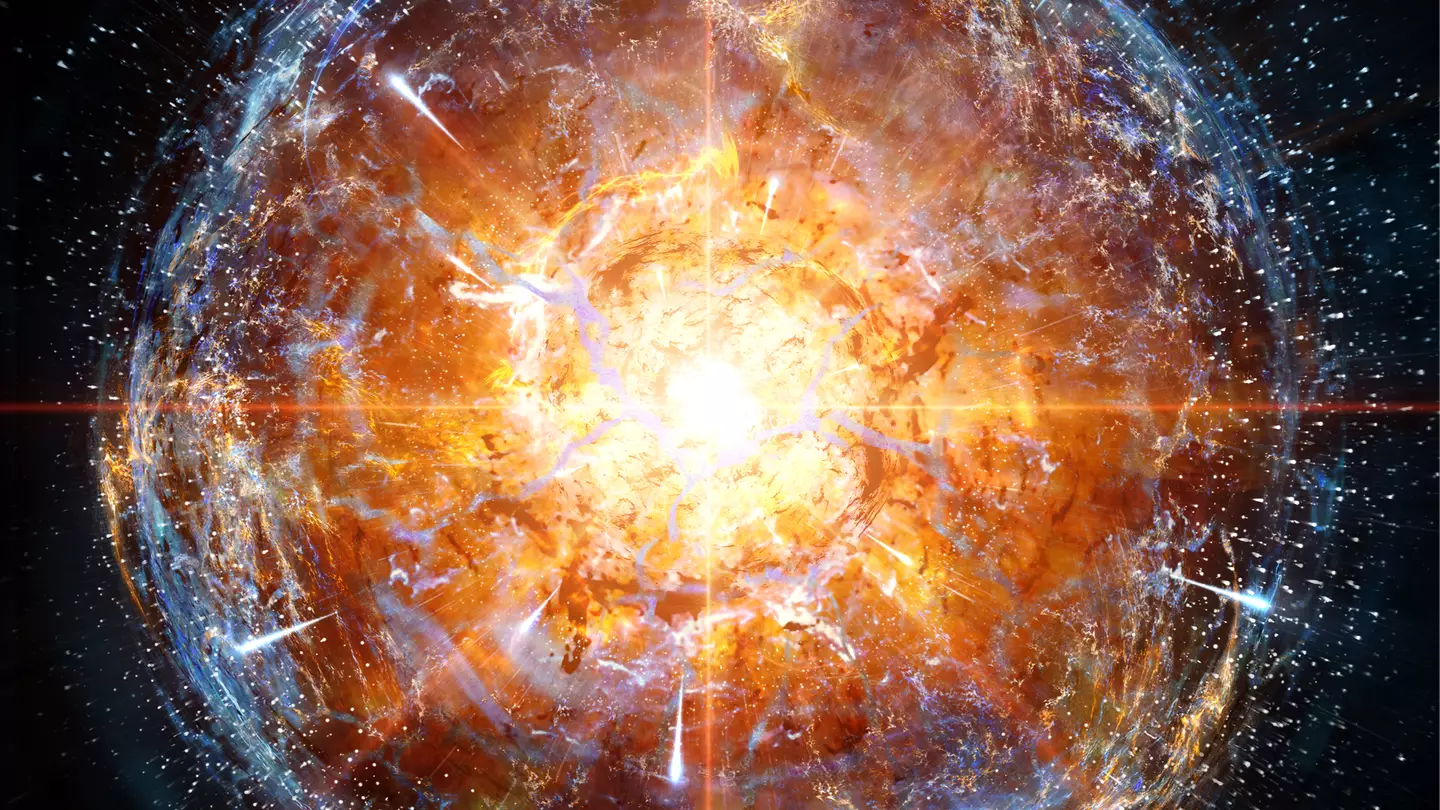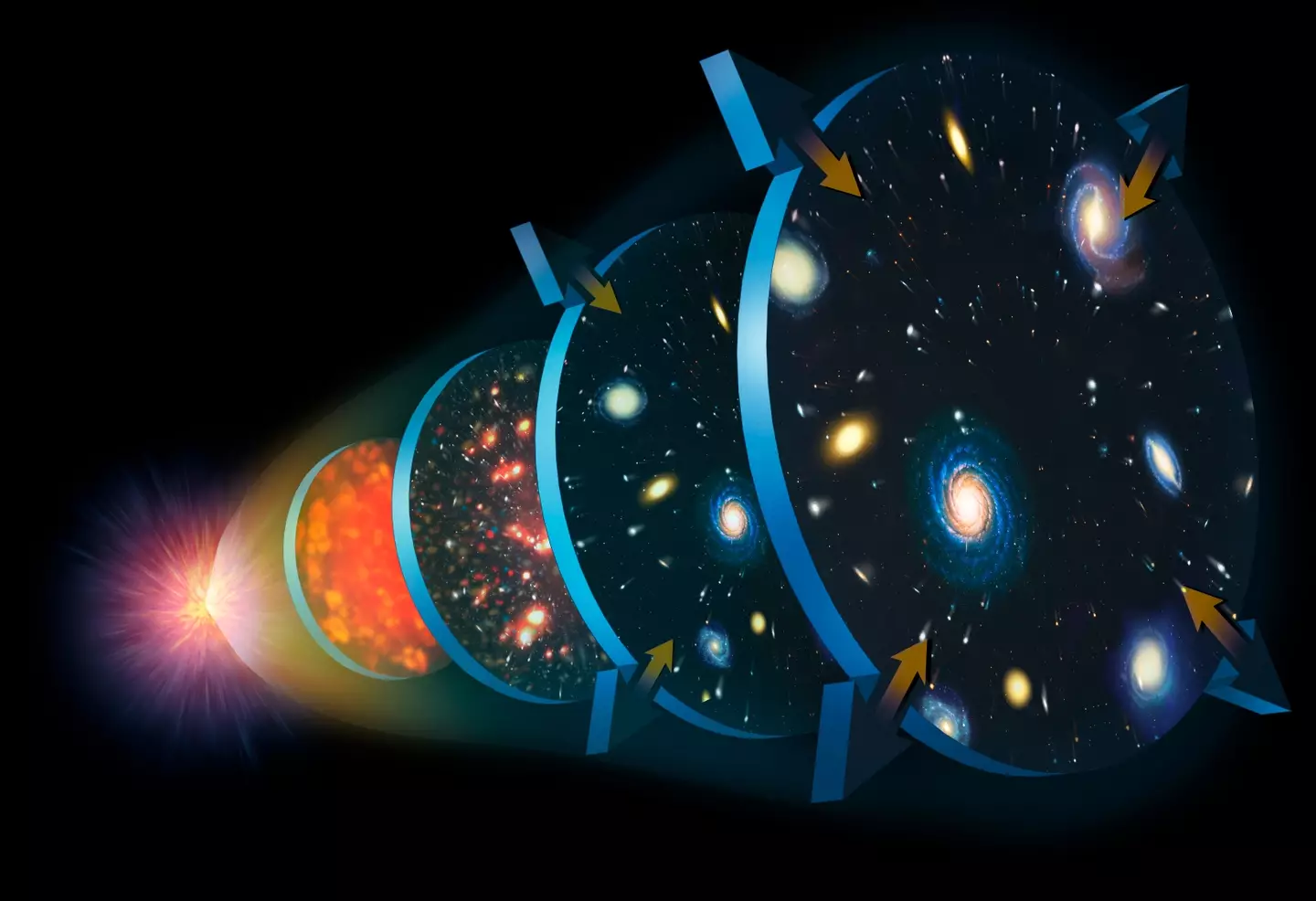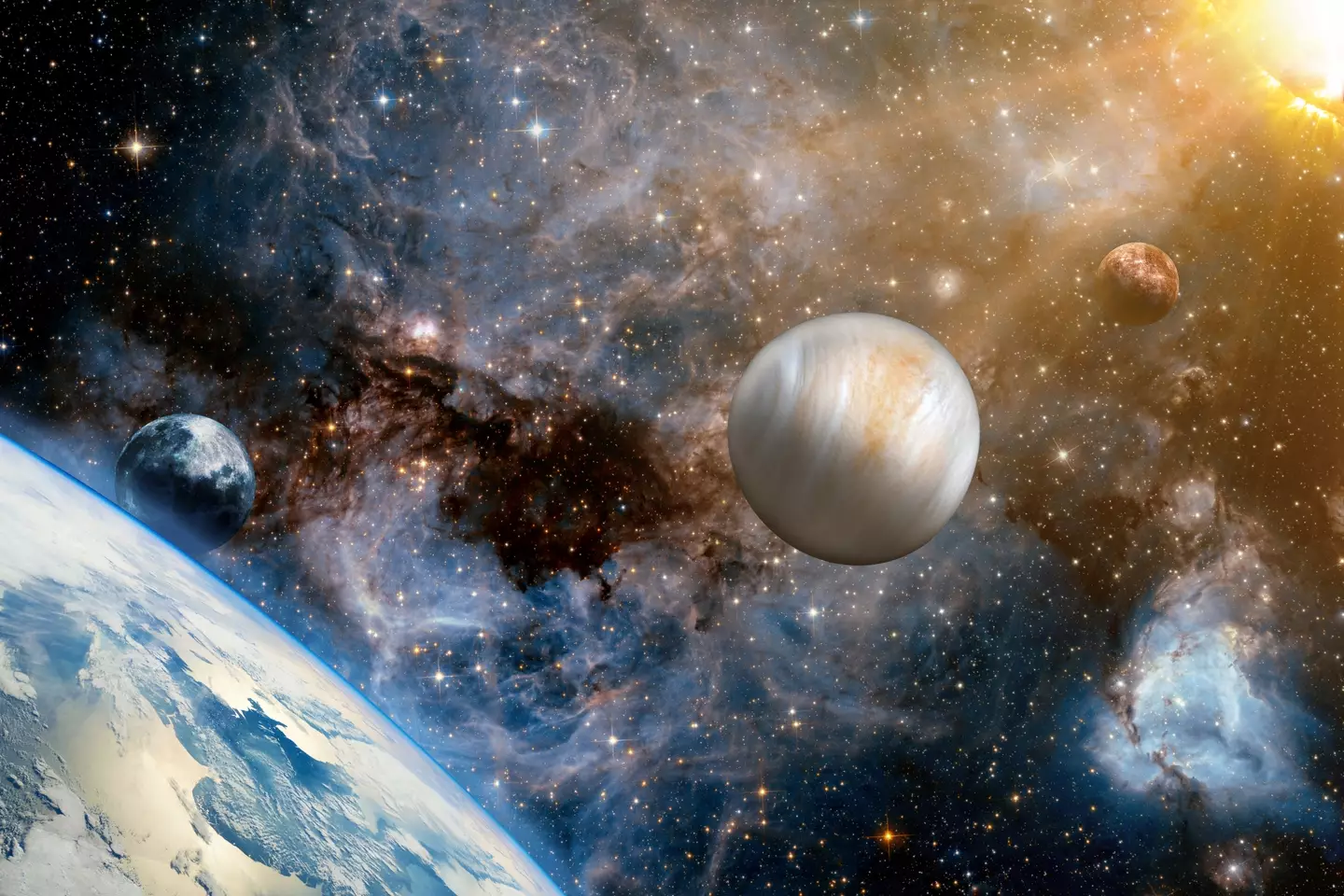
Typically, the whole debate over how the universe was created takes place between religion and science.
Most scientists tend to support the Big Bang Theory while Christians of course believe that God created Earth.
However, there’s plenty of other ideas and conspiracy theories out there. And one scientist has come up with a somewhat controversial theory as they say the thought that the Big Bang was the cause of it all is wrong.
Although, it’s not some kind of idea that aliens were involved or that we’re all part of some Marvel-like ‘multiverse’.
Advert
Instead, Richard Lieu of The University of Alabama in Huntsville, US, reckons it was a whole series rather than the one individual, mega explosion.
He published his alternative theory that the cosmos came about through a number of rapid-fire bursts.

“The new model can account for both structure formation and stability, and the key observational properties of the expansion of the universe at large,” he explains.
Lieu argues these bursts, or ‘temporal singularities’, blasted out new matter and energy into space.
He reckons they replace the need for the invisible stuff that cosmologists have long said fills the cosmos. This model builds on the physics professor’s earlier work from 2024.
And his theory, described as ‘groundbreaking’, could reportedly help to resolve questions over cosmic expansion and galaxy formation without having to rely on ideas like dark energy and dark matter.
“This new paper proposes an improved version of the earlier model, which is also radically different,” he stated.
“The new model can account for both structure formation and stability, and the key observational properties of the expansion of the universe at large, by enlisting density singularities in time that uniformly affect all space to replace conventional dark matter and dark energy.”

These mysterious bursts described by Lieu remain undetected by astrophysicists because of their speed and infrequency.
“These singularities are unobservable because they occur rarely in time and are unresolvedly fast, and that could be the reason why dark matter and dark energy have not been found,” he explained.
Lieu believes his theory overcomes the model of the Big Bang and offers a framework that doesn’t need those dark matter and dark energy concepts that are yet to be proven.
According to the Big Bang theory, it’s dark matter that holds the structures of the cosmos in place and that dark energy is the force pushing the universe to expand.
Topics: Science, Big Bang Theory, Space